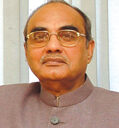Noise about ‘One Nation, One Poll’ drowning out meaningful debate
The slogan ‘One Nation, One Election’ has a nice ring to it. And the idea of a weeklong poll — for which no amendment to the existing provisions is required — seems all the more appealing. We should be striving to make that a reality. But turning elections into a routine affair is the best option; each round, including the campaigning, shall be wrapped up within a fortnight.
Two arguments usually made in favour of the proposal for holding simultaneous Lok Sabha and Assembly elections are that it would cut down the expenses and ensure better governance and, hence, more development. Of course, these are matters that should concern political leaders.
Elections are meant for a representative form of government. If the notion of representativeness in polls continues to diminish, the electoral exercise will be reduced to being a financial burden.
The raging debate on parallel polls in the country has been marked by a charged political rhetoric. But little has been done to address basic issues.
There are eight concerns that we should be debating instead of going around in circles discussing the feasibility of simultaneous polls.
First, reforms are needed to make political parties more accountable and their functioning more transparent.
Second, there is a need to draw a line between the role of the ruling dispensation in the conduct of the polls and the functioning of the agencies concerned.
Third, ensure that the Election Commission of India is truly independent and its working remains neutral and transparent.
Fourth, rather than promoting centralisation in governance, we must go for decentralisation.
Fifth, we should focus on boosting the representation of people through elections.
Sixth, holding polls in a phased manner makes the exercise more expensive.
Seventh, there can be no hope for a reform unless we change the way candidates campaign.
Eighth, the advent of new tools of technology can help set things right in the electoral arena. Why then has nothing of the sort happened?
It is time we deliberated on these pressing matters first.









